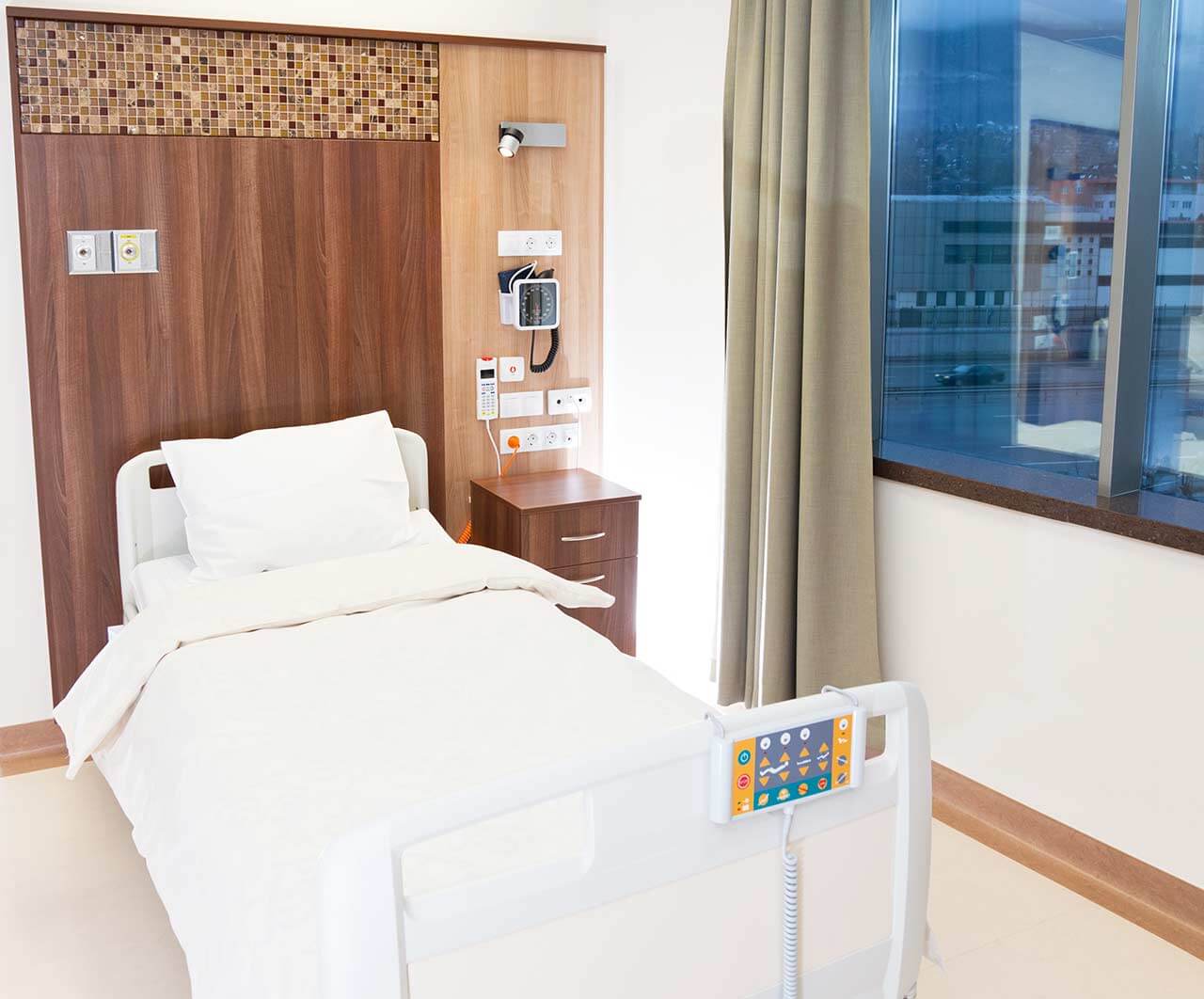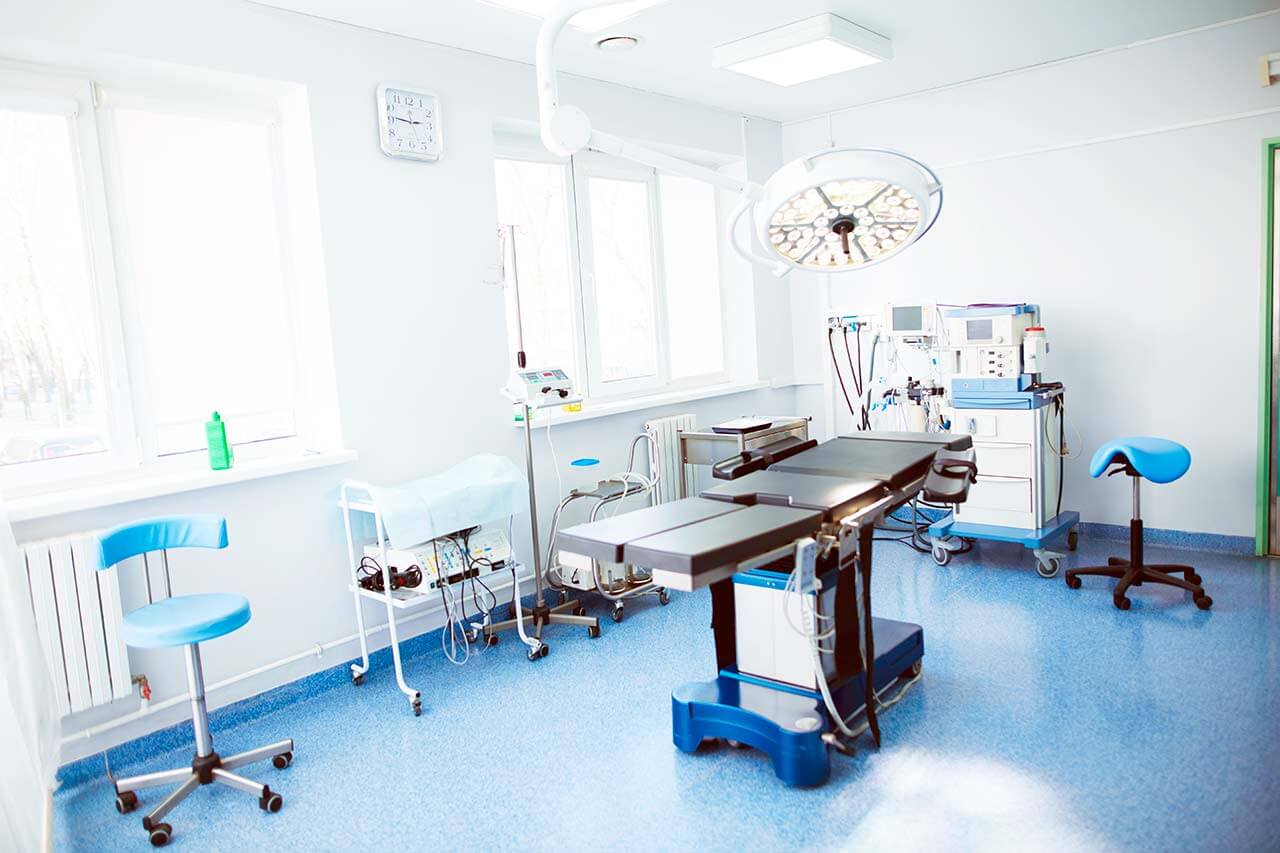
About the Department of Bariatric Surgery at Medicana International Ankara Hospital
The Department of Bariatric Surgery offers a wide range of minimally invasive surgical techniques for obesity treatment. The surgical treatment is complemented by an individually developed diet, exercises, and drug therapy. All surgical interventions are performed in the high-tech operating rooms equipped with the advanced monitoring systems. The department is headed by Prof. Dr. med.
Önder Sürgit. The doctor has performed many successful operations and saved hundreds of patients' lives.
The department specializes in performing the following bariatric procedures:
- Gastric banding. This intervention implies the imposition of a bandage (special ring) on the stomach. The bandage, which narrows the entrance to the stomach, is installed in the upper part of the stomach. Thus, this part of the stomach is able to form a "small stomach" (pocket). Then the port is placed under the skin, with the help of which the bandage is inflated. There is a liquid (saline solution) inside the port, which makes the bandage enlarged. As a result of surgical intervention, the food intake to the stomach is restricted. In most cases, gastric banding surgery is performed laparoscopically and under general anesthesia. The operation lasts about an hour. In order to consolidate the results, it is extremely important for the patients to keep changes in diet and lifestyle. Otherwise, the patient will not be able to achieve a significant weight loss after surgery.
- Gastric bypass surgery. A surgical intervention is performed laparoscopically (in some cases open surgery is possible), under general anesthesia. The most common method is gastric bypass surgery with gastrojejunostomy (creation of an anastomosis between the stomach and small intestine) according to Roux, in which no more than 10% of its volume remains in the uppermost part of the stomach. The created small stomach is connected to the last section of the small intestine. Thus, the operation provides an exclusion from the digestion of 90% of the stomach and the first sections of the small intestine. Also, the department performs biliopancreatic bypass surgery with the exclusion of duodenal ulcer. The duodenum exclusion from the digestive system directly affects metabolism and provides a higher weight loss. The performance of this operation provides both a restriction on the amount of food consumed and a decreased level of food absorption. The procedure is an effective treatment for diabetes, hypertension and high cholesterol levels due to the overweight. The most common complication of this operation is the deficiency of vitamins and proteins, which develops as a result of chronic diarrhea and decreased fat absorption.
- Bariatric arterial embolization. The operation serves to provide the embolization (occlusion) of the left gastric artery, which supplies blood to a fundal part of the stomach, where the ghrelin, an appetite hormone, is produced. The results of various examinations have shown the effectiveness of the artery embolization for suppression of ghrelin secretion process. Today, this type of bariatric surgery is at the research stage.
- Sleeve gastroplasty. This method involves the removal of up to 80-90% of the stomach and the formation of the remaining part in the form of a tube. This operation is performed by a closed (laparoscopic) method and lasts from one to two hours. After the operation, the patients eat liquid food for the first two weeks, in the next two weeks they consume soft food and then completely consume their normal nutrition. In some cases, the additional intake of vitamins is required. The hormone ghrelin is considered to be the cause of obesity. It is produced by the cells of the fundal part of the stomach and it is responsible for the sense of hunger. This surgical method provides a total removal of the fundal part of the stomach and, as a result, loss of appetite in patients. The sleeve gastroplasty provides weight reduction both by mechanical limitation of the amount of food (stomach volume reduction) and by the effect on the production of the hunger hormone. Thus, along with the stomach volume reduction, the control of the sense of hunger is provided. Due to the fact that this method does not affect the small intestine, there are no problems with the absorption of nutrients after surgery.
- Other treatment methods for obesity
Curriculum vitae
Education
- 1995 School of Medicine, Hacettepe University.
- 2001 Residency, School of Medicine, Ankara University.
Professional Career
- 2001 - 2007 Surgeon, Niğde State Hospital.
- 2016 Assistant Professor, School of Medicine, Turgut Özal University.
- Since 2016 Head and Professor of the Department of Bariatric Surgery at the Medicana International Ankara Hospital.
Areas of Specialization
- Total laparoscopic gastrectomy.
- Laparoscopic sleeve gastroplasty.
- Laparoscopic mini gastric bypass.
- Laparoscopic Nissen fundoplication with mesh hiatoplasty.
- Laparoscopic splenectomy.
- Laparoscopic colon surgery.
- Laparoscopic radical nephrectomy.
- Laparoscopic donor nephrectomy.
- Endoscopic saphenectomy.
Photo of the doctor: (c) Medicana Health Group





